We’re a little freaked out that it’s almost 2015. The decade is half over! To try and make sense of time passing the Recorder staff is going to write about their favorite stuff from the past 5 years in a few installments between now and the end of the year. This month we’ll wax rhapsodic about our favorite books published since 2010.
Alex
The Western occupies a singular place in American popular culture and our national myths by straddling the divide between our agrarian past and industrial present. At its best it tells stories that serve to mythically resolve the tension between the many competing impulses of the American psyche. Blood Meridian and Lonesome Dove are the apotheosis of this genre as a novel, but last year saw a great new addition to the Western literary canon.
The Son, a Pultizer finalist written by Philipp Meyer, is a sprawling and magnificent Western that captures the blood and folly of conquest and the inevitable collapse of the conquerors. The novel centers on the fictional McCullough clan and uses a shifting POV structure to follow multiple generations of the family across nearly two centuries of Texas history. The novel’s most memorable character is Eli, a boy who is kidnapped and then adopted into the Comanche tribe in the 1840’s and carries their savagery and clear-sightedness for the remainder of his long life. He was the first child born in the new Republic of Texas in 1836 and personifies the state’s many-hued character across the century of violence and greed he lives through. His son, Peter, inherits his father’s wealth, but is haunted by guilt over how his family acquired its wealth and power. Eli’s great-grandaughter, Jeanne Anne, is equipped with the same base impulses as Eli, but finds that the world expects very different things from a woman and disrespects her for not acceding to the many swaggering men in her life.
The three-headed narrative can be disjointed at times, but Meyer uses muscular prose, shared themes, and a stunning dagger of a finale to tie them all together. Meyer leaves his readers gaping at the choices and chances that guarantee the success of one generation can only doom the next. In my opinion, The Son is a deserving new addition to the Literary Western cannon.
-J.
I always have difficulty with this one. I’m always a few years behind on my fiction and my speculative history reading. My reading queue is utterly filled with genre fictions, role-playing game books, and graphic novels. I could talk about the game-related fiction of Delta Green, and how its take on supernatural horror and government paranoia has evolved as our news cycles have evolved with stories of terrorism, the NSA, and the ever-present cruelty of man. I could wax rhapsodic about the gaming Renaissance we’re in the middle of. There are seemingly more transformative rulesets and immersive RPGs campaigns published in the last half-decade than in the decade before it.
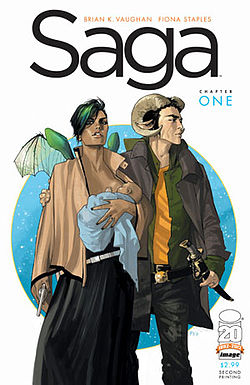 If I wanted to look at graphic novels, there are so many ways to go, from the grit of Rubicon or the Pirandello-esque storytelling of The Reason for Dragons. Meanwhile, Atomic Robo and Rat Queens are some of the most fun I’ve ever had while reading. And yet, if we’re talking about some of the best published stories of this half-decade… I have to go with the Saga series. It’s the tale of two new parents trying to navigate a galaxy that wants them dead. It’s a space opera that tells a story which is utterly human, relatable, and compelling. I’ve enjoyed it more than anything else this decade so far.
If I wanted to look at graphic novels, there are so many ways to go, from the grit of Rubicon or the Pirandello-esque storytelling of The Reason for Dragons. Meanwhile, Atomic Robo and Rat Queens are some of the most fun I’ve ever had while reading. And yet, if we’re talking about some of the best published stories of this half-decade… I have to go with the Saga series. It’s the tale of two new parents trying to navigate a galaxy that wants them dead. It’s a space opera that tells a story which is utterly human, relatable, and compelling. I’ve enjoyed it more than anything else this decade so far.
Travis
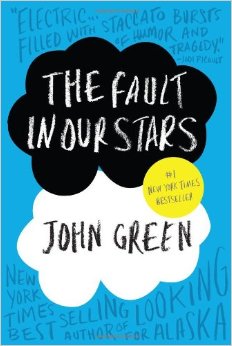 I’m stealing this one before the other 2/3rds of the staff can make this claim, but I’ve only read one book in the past five years that utterly devastated me as much as anything I’ve ever experienced in popular culture. It may be a young adult novel (but why does that mean it can’t be good/deep/profound?), it may be somewhat slimmer than other weighty works (see previous question), and his prose might be overtly impressed with itself at times (which isn’t a problem – see Faulkner, William), but John Green’s The Fault in Our Stars is my selection for the best book of the half-decade. It’s been summarized and reviewed more thoroughly elsewhere, so I’ll just provide this quick tidbit – while reading it for the first time, I was caught up in it. Then I reached a point about 2/3rds of the way through. I proceeded to hurl the book across the room in rage, too pissed to continue. 30 seconds later, I picked it up again and read it straight through. This book does things to people. It will move you, shake you, and make you re-examine how you view, life, death, love, hate, and agony in all of its glorious words.
I’m stealing this one before the other 2/3rds of the staff can make this claim, but I’ve only read one book in the past five years that utterly devastated me as much as anything I’ve ever experienced in popular culture. It may be a young adult novel (but why does that mean it can’t be good/deep/profound?), it may be somewhat slimmer than other weighty works (see previous question), and his prose might be overtly impressed with itself at times (which isn’t a problem – see Faulkner, William), but John Green’s The Fault in Our Stars is my selection for the best book of the half-decade. It’s been summarized and reviewed more thoroughly elsewhere, so I’ll just provide this quick tidbit – while reading it for the first time, I was caught up in it. Then I reached a point about 2/3rds of the way through. I proceeded to hurl the book across the room in rage, too pissed to continue. 30 seconds later, I picked it up again and read it straight through. This book does things to people. It will move you, shake you, and make you re-examine how you view, life, death, love, hate, and agony in all of its glorious words.
Andrew
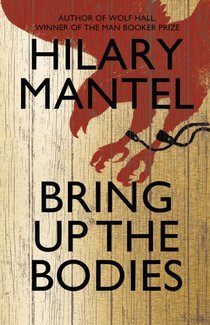 The Man Booker Prize is the United Kingdom’s version of the Pulitzer, and only one woman has won it twice: Dame Hilary Mantel, for Wolf Hall in 2009 and its sequel Bring Up the Bodies in 2012. These are masterpieces of fiction, which seamlessly mix the classical, straightforward storytelling of multiplot Victorian literature with 21st century psychological insight, stream of consciousness, and a commitment to honesty in all matters of sex, violence, and our darker sides. The books retell the life story of Thomas Cromwell, the ambitious merchant who became Henry VIII’s most trusted advisor. Unlike similar historical novelists, Mantel does not stylistically repeat herself—Wolf Hall’s epic narrative spans decades, while Bring Up the Bodies concentrates on the imprisonment and trial of Anne Boleyn—but the theme stays the same throughout, challenging readers to consider the limits of power and control and what acts they would perform to survive and thrive in difficult circumstances. They are not always easy or pleasant reading, but in preparation for Bodies I reread Wolf and found myself even more gripped by her characters, detail, and plotting than the first time. These are classics made to last, and I eagerly anticipate the final Cromwell novel next year.
The Man Booker Prize is the United Kingdom’s version of the Pulitzer, and only one woman has won it twice: Dame Hilary Mantel, for Wolf Hall in 2009 and its sequel Bring Up the Bodies in 2012. These are masterpieces of fiction, which seamlessly mix the classical, straightforward storytelling of multiplot Victorian literature with 21st century psychological insight, stream of consciousness, and a commitment to honesty in all matters of sex, violence, and our darker sides. The books retell the life story of Thomas Cromwell, the ambitious merchant who became Henry VIII’s most trusted advisor. Unlike similar historical novelists, Mantel does not stylistically repeat herself—Wolf Hall’s epic narrative spans decades, while Bring Up the Bodies concentrates on the imprisonment and trial of Anne Boleyn—but the theme stays the same throughout, challenging readers to consider the limits of power and control and what acts they would perform to survive and thrive in difficult circumstances. They are not always easy or pleasant reading, but in preparation for Bodies I reread Wolf and found myself even more gripped by her characters, detail, and plotting than the first time. These are classics made to last, and I eagerly anticipate the final Cromwell novel next year.
Meryl
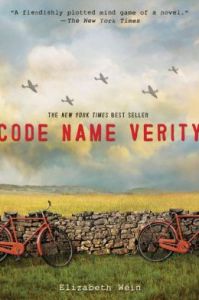
Code Name Verity, by Elizabeth Wein (image via)
Despite close contenders like Ann Patchett’s State of Wonder and Gillian Flynn’s thriller Gone Girl, 2012’s Code Name Verity, by Elizabeth Wein, is my pick for the best of the half-decade. This beautifully written page-turner is classified as Young Adult, but I recommended it to friends and family of all ages when I finished it last summer. It takes place during World War II and centers around two young women whose plane crashes in Nazi-occupied France. The friendship between a pilot and her passenger is so strong, uplifting, and real — they will do anything they can to protect each other. The story in this book is told in a non conventional way, but believe me when I say it has a big pay off.
Code Name Verity was recommended to me by my friend Margaret, a YA aficionado, and I am so glad I saw it at a bookstore in the Denver airport before flying home last August. It starts a little slow, but when it gets good, it gets really, really good. You will want to call your best friend the minute you finish this book — and then you’ll want to start it over from the beginning.
Karen
Paranormal fiction is becoming more mainstream and attracting a number of talented authors. It can also be difficult to separate solid, well-written narratives from derivative drivel. Anne Bishop always delivers strong, satisfying dark fantasy novels and short stories, and I’ve been a fan of her work for more than a decade.
In 2013, Bishop launched a new series: “The Others” with the book Written in Red. The novel is about a young woman with the ability to see visions of the future. Her talents are used by a shady corporation until she’s able to escape. She is hidden by the terra indigne, terrifying creatures who can appear human when they so choose. Bishop has a talent for creating rich worlds that are both familiar and eerily different from our own. Written in Red takes place in a land that is recognizably North America, but the natives that inhabited the wilderness were dangerously different from the natives our early explorers found, and history took a very different turn. Bishop completely re-imagines a world with werewolves, vampires, and prophets, and what their presence means for the average human.
Like her settings, her characters are well-rounded and feel true despite their differences. They are strong, vulnerable, struggling, funny, and tragic in turn. I have re-read Written in Red and its sequel, Murder of Crows more times than I ought to admit. The third book in “The Others” series, Vision in Silver, will be released next spring.

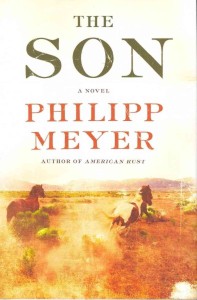
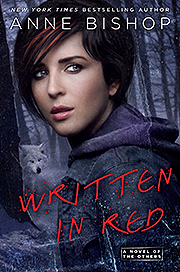





Andrew, one of the things that haunted me after reading the Cromwell novels was how Mantel drew the reader into identifying with Cromwell’s ethos and choices. Once that’s accomplished and we’re firmly on his side the stakes become higher and the decisions more bloody. We’re still on his side, but only near the end of Bring Up the Bodies do we realize that that means we’ve cheering for innocent blood to spill. Is that what you referred to as the difficult to read sections?
Alex…absolutely! The power of the novels comes in no small part from how we can identify with the choices Cromwell makes and realize how easily it would be for us to make the same choices, to move people around like chess pieces and casually send them to their death.